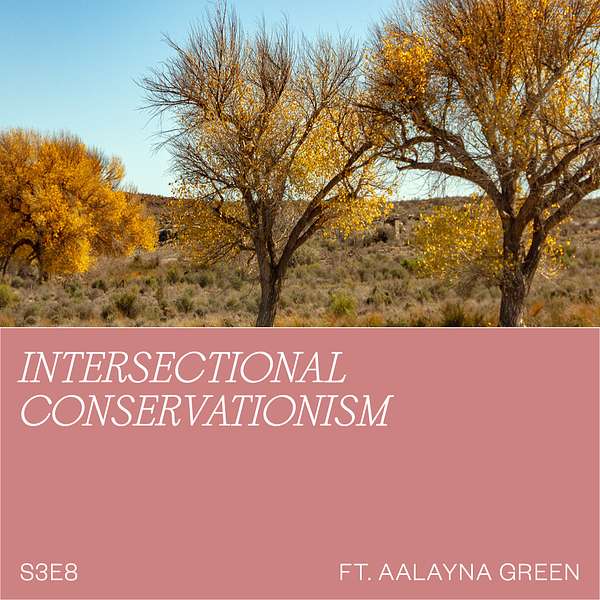
Crystals, Clits, and Climate
The Crystals, Clits and Climate podcast explores the intersection of spirituality, sexuality and sustainability. With your host, Hannah Phang, we’ll cover the basics of each, as well as get down and dirty into how they are all connected. We experience these topics every day on an individual level and they are growing as global conversations. But they’re also steeped in shame and misinformation. So on this podcast you’ll hear from an incredibly wide range of experts from astrologists to astrophysicists, from tantra teachers to gynecologists, and from activists to climate scientists, to help us normalise these essential parts of life.
Crystals, Clits, and Climate
S3E8: Intersectional conservationism with Aalayna Green
•
Hannah Phang
•
Season 3
•
Episode 8
Use Left/Right to seek, Home/End to jump to start or end. Hold shift to jump forward or backward.
Aalayna (Ah-Lay-nah) Green (she/her) is a self proclaimed unapologetic scholar activist and intersectional conservationist. She’s pursuing a BS in Zoology at Michigan State University. She’s passionate about human-environment relationships, and she studies the interconnections between wildlife crime, human-wildlife coexistence, and critical race theory and gender studies. She is the co-Environmental Education Director for Black Girl Environmentalist and seeks to position BIPOC women and nonbinary folk at the forefront of the environmental movement.
We talk about:
- How the mainstream environmental movement and industries centre the white perspective
- Conservation efforts exclude the role of women in the scope of the problems and solutions
- Being an environmentalist includes considering how your environment impacts your ability to freely express yourself
Key Takeaways:
- Being sustainable is often positioned as a new way of doing things and often requires purchasing new items. Aalayna shares with us examples of how BIPOC communities already have sustainable lifestyle behaviours, and these need to be considered and celebrated in the sustainable lifestyles movement.
- Conservation solutions haven't been considering the role of women. Like in many industries, efforts to solve problems are created by men and for men. This limits our ability to address systemic and interconnected issues because we aren't looking at the problem in its entirety and are missing out crucial perspectives and key stakeholders when creating solutions.
- Women, non-binary, and BIPOC folk are reclaiming their space in the environmental movement and looking at how intersectional identities are impacted by environmental issues can help us have deeper conversations about the potential solutions.
- Classism is incredibly present in the environmental industries. To work in the space often requires higher education which often requires a level of privilege in order to access those institutions. Because BIPOC do not have as easy access to those spaces, they are often not considered for environmental jobs. However, BIPOC are more likely to be impacted by environmental issues, but their perspective is often left out of solutions and environmental work because of the lack of higher education. And the people creating the solutions have never experienced the problems they are trying to address and will also not experience the impact and consequences of the solutions.
Links and resources: